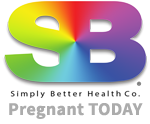How will I know when my baby is hungry and getting enough breastmilk?
It’s a common question, especially with first time Mums and their partners. In this current age of high-tech, it is difficult for many to get their head around not being able to see how much baby is ingesting.
Nature provides the best food for your baby. It is a live food, full of nutrients including carbohydrate, protein and fat as well as other essential ingredients.
After your baby is born, their gut is still developing inside for up to 6 months. Breast milk provides the very best nutrients to both protect and continue enhancing the development of their gut lining. Seeing it as the continuum of the umbilical cord fluid, that fed your baby whilst in utero, often helps to gain perspective.
So how do you know when your baby is hungry... there are a few cues (signs) that can be life savers.
The early cues when baby is saying “I’m hungry” are:
- Stirring
- Mouth opening
- Turning head and
- Seeking/rooting for the nipple
The mid cues when baby is saying “I’m really hungry” are:
- Stretching
- Increasing physical movement and
- Putting hand to mouth
The late cues when baby is saying “Calm me, then feed me” are:
- Crying
- Agitated body movements with a face often turning red
If you’re at the late cue stage, calm your crying baby first. It is very difficult to attach and breastfeed a baby when they have got to this stage.
Take time to calm your crying baby by:
- Cuddling
- Undressing and having skin to skin on chest
- Talking
- Stroking
Then when calm, baby will attach much easier to breastfeed.
Breastfed babies feed more often than their formula friends. Breast milk is much easier and quicker to digest. Most newborns will have anywhere between 8-12 feed in 24 hours. This will often depend on the size of the baby. Remembering that the size of your baby’s stomach is about the size of their fist. As the weeks go by, baby becomes stronger and is able to take larger amounts of breastmilk and breastfeeds will reduce accordingly.
It takes time for your baby to get to know you and vice versa. Although your breasts will feel very full in the early days and weeks, as time goes by breasts settle into baby’s feeding pattern and often new Mums think their milk is dwindling - not necessarily so.
It is a good idea to go with the flow, so to speak, in the early days and weeks. The less interference the better. Of course, every new Mum has a different set of circumstances and is doing the best she can.
How do you know if baby is having enough breastmilk?
Well over 24 hours, baby will take differing amounts, so don’t get hung up on there being a certain amount taken at each feed.
After all, you have different intakes of food throughout the day, don’t you?
When baby is producing 6-8 wet nappies in 24 hours with bowel motions varying from many a day to one every few days, all is on track.
When baby is happy and content most of the time that’s another sign.
After feeding if you keep baby upright to both burp and allow milk to digest for about 20 minutes, you’ll find baby will settle much easier.
After all, do you lay down straight after you have your meal?
Baby’s are used to the sound of your heart and blood pumping, it’s soothing for them. Slowly they will get the idea that they are outside the womb and there is no need to be afraid.
Meanwhile, don’t be concerned about spoiling your new baby... using a sling facing your chest, will keep your hands free.


